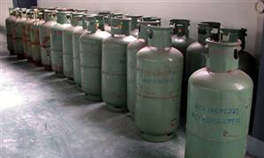India's journey towards sustainable cooling
Sustainability, for long, has been at the core of Indian lifestyle and its indigenous knowledge and sustainable practices have played a crucial role in helping people be informed and make environmentally
Sustainability, for long, has been at the core of Indian lifestyle and its indigenous knowledge and sustainable practices have played a crucial role in helping people be informed and make environmentally
This paper seeks to ground the debate on climate finance in an objective analysis of ongoing efforts to finance mitigation and adaptation in developing countries. The authors step back from the question of
The most commonly-known f-gases are the early, so-called first generation F-gases: the CFCs that destroyed the ozone layer and were banned by the Montreal Protocol. However, in the race to save the ozone layer, the use of their second generation cousins was accelerated: HCFCs, now also banned under the Montreal Protocol.

The comprehensive road map for phasing out hydrochlorofluorocarbons (HCFCs) in various sectors as per the reduction targets of Montreal Protocol released by the Ministry of Environment and Forests. India plans to cut the use of the HCFCs by 10 per cent by 2015 and then to zero by 2030.
<a href="image/20090930/ozone.pdf" target=_blank"><img src="image/20090930/18-1.jpg" border="0"></a>
Nepal has effectively implemented the Montreal Protocol 1987 by doing a remarkable work in the field of minimising the use of chloroflourocarbons (CFCs) -- the major green house gases responsible for the ozone layer depletion, praised experts on Wednesday.
The estimates for additional investments needed in developing countries to tackle the mitigation challenge are far beyond the currently available resources.
Currently, the main challenge is that the long-term, financially viable, widely available and environmentally safe alternative technologies are still under development in many fields. The research and development are fast but deadlines for compliance are also pressing.
The Montreal Protocol on Substances that Deplete the Ozone Layer has since been recognized as an extraordinary environmental success in global cooperation to protect the ozone layer. The Montreal Protocol has completed more than 20 years of its progress.
Scientists who study the depletion of Earth
When nations made plans to save the ozone layer, they didn't factor in global warming. Quirin Schiermeier reports on how two environmental problems complicate each other.